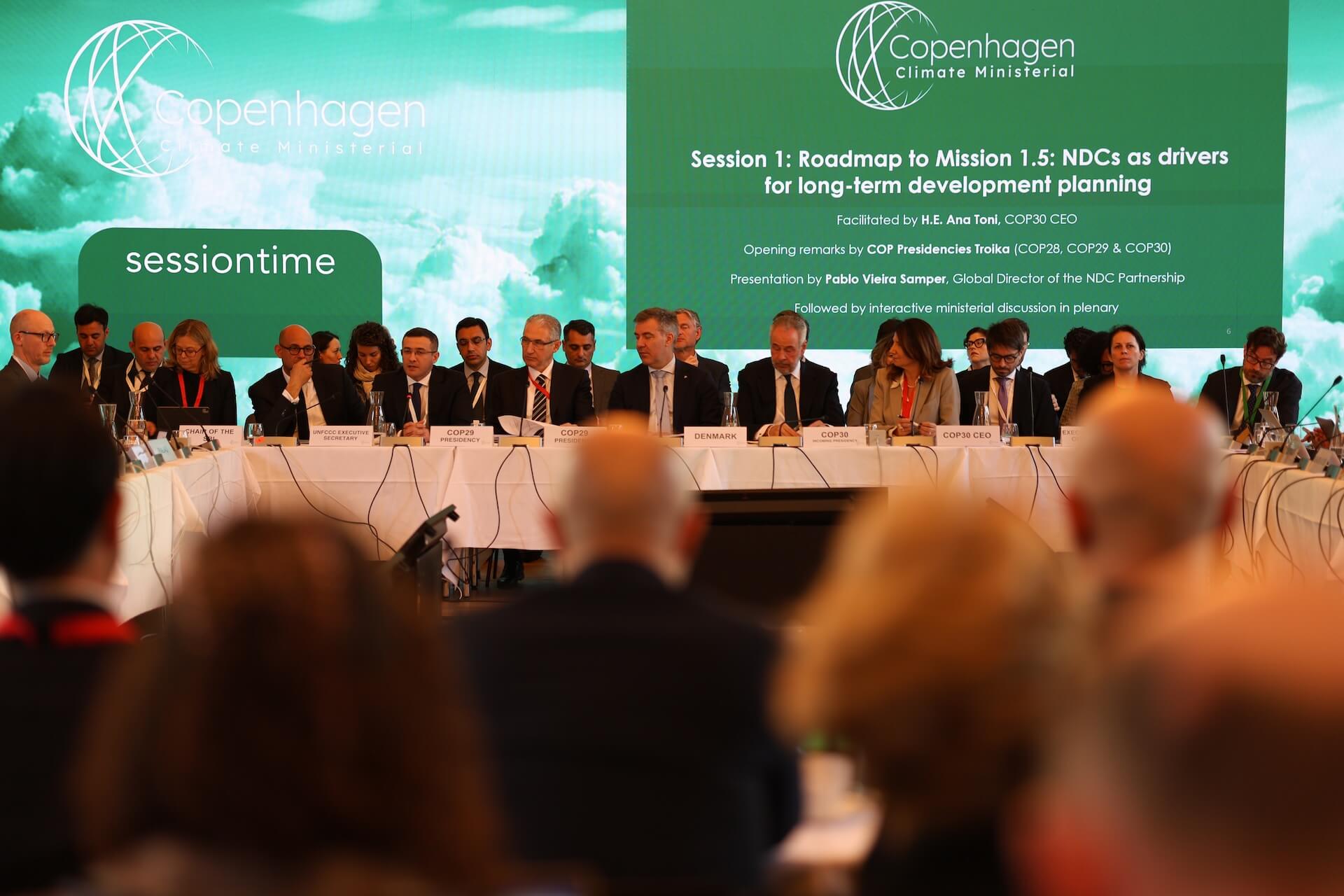COP30 President stresses importance of multilateralism and urgency of action to tackle climate change
COP30 President stresses importance of multilateralism and urgency of action to tackle climate change.

On May 7 (Wednesday) and 8 (Thursday), climate ministers and government leaders — from 40 countries — meet in Copenhagen, Denmark, to discuss key issues and expectations at a preparatory meeting for COP30, a climate conference that Brasil will host in Belém, Pará, from November 10 to 21. Speaking at a press conference ahead of the meeting, COP30 President Ambassador André Corrêa do Lago stressed the need for urgent collective action to tackle the climate crisis.
"I have been a climate negotiator for many years, and what has changed is the sense of urgency. We can no longer be so concerned about who is right or who is wrong. We need to focus on what we can do now, because the science tells us we have a limited time to act," he said, stressing the importance of the multilateral system.
The Copenhagen Climate Ministerial, hosted by the Danish government, is part of a series of preparatory meetings throughout the year that bring together ministers, negotiators, observers and others. This year's edition was co-chaired by Azerbaijan, which will host COP29 in Baku in 2024, and Brasil, which will host COP30.
Lars Aagaard, Denmark's Minister for Climate, Energy and Utilities, stressed that "when we see some countries moving away from global agreements and action, it is even more important that the rest of us continue to act together". "We must find solutions together. We have no alternative," he added.
Topics to be discussed over the next two days include pathways to a just transition, climate finance, the role of subnational governments and the implementation of the global stocktake agreed at COP28.
"The climate crisis is more urgent than ever, and action cannot be put off until a convenient day," said COP29 President Mukhtar Babayev. "We must focus on tackling the climate crisis because action is required from everyone, everywhere."
Simon Stiell, executive secretary of the United Nations Framework Convention on Climate Change (UNFCCC), highlighted the collective progress made in recent years, such as the commitment to accelerate the transition away from fossil fuels and the agreement on a historic fund for loss and damage. Now, he said, it is time to accelerate implementation and raise ambition:
"Before the Paris Agreement, we were on a global warming pathway [by 2100] of around 5°C, which would be a death sentence for many. Now we are on a path of about 3°C," said Stiell. "The process is working, even if it is slower than the science suggests is necessary to address the climate crisis."
The Copenhagen meeting also aims to encourage countries to be more ambitious in their new climate targets, which are expected to be submitted later this year. So far, 20 countries have submitted their Nationally Determined Contributions (NDCs) - including Brasil, which has pledged to reduce its net greenhouse gas emissions by between 59% and 67% from 2005 levels by 2035.
President Lula is leading a joint effort with UN Secretary-General António Guterres to highlight the importance of NDCs and the need for 1.5°C compatible targets. A meeting of heads of state took place last month and another is planned for the second half of the year.
English version: Trad. Bárbara Menezes
Proofreading by Enrique Villamil
